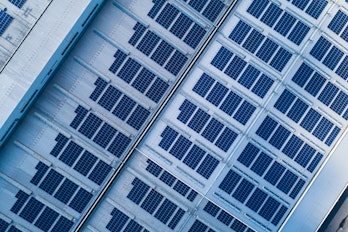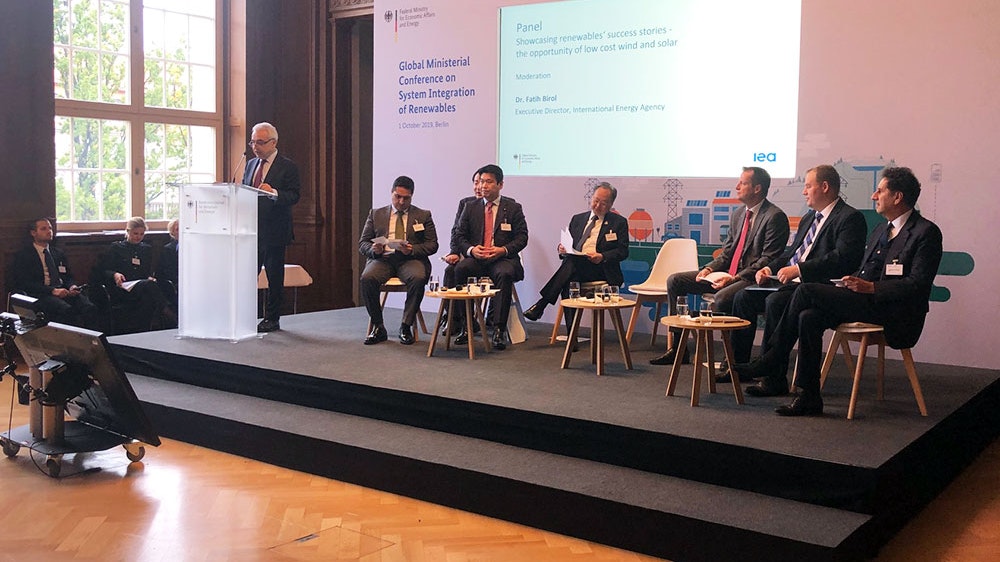Fuel report
Renewables 2019

Organised by the German Federal Ministry for Economic Affairs and Energy and the IEA, the Global Ministerial Conference on System Integration of Renewables was attended by high-ranking officials. (Photograph: IEA)
Thank you for subscribing. You can unsubscribe at any time by clicking the link at the bottom of any IEA newsletter.
